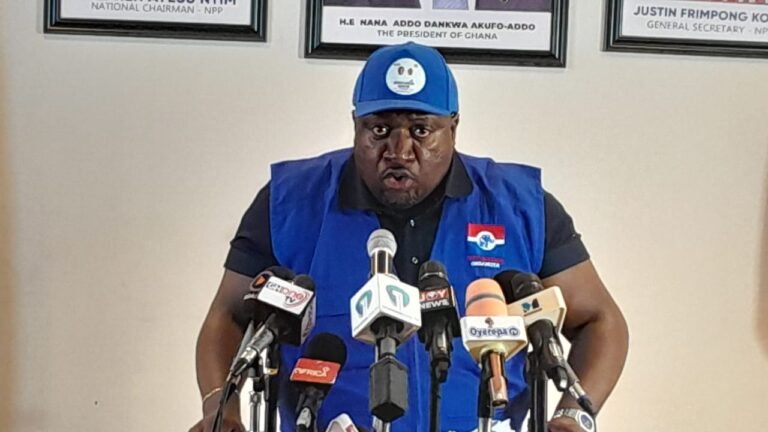
President Nana Addo Dankwa Akufo-Addo
President Nana Addo Dankwa Akufo-Addo says Ghana must pursue institutional reforms if the country wants to have efficient land administration.
These reforms, he mentioned, include reforms in personnel, processes and the working culture of the Lands Commission.
The President said this when he inaugurated the Lands Commission Board on Wednesday.
“Fortunately, the Land Act, 2020 (Act 1036), which we worked so hard to pass last year, gives us a good foundation to achieving these reforms. The Act has far reaching provisions that, if implemented, will go a long way to build the effective land administration we desire.
“Key among them, the establishment of Customary Land Secretariats to see to the management of stool, skin, family and clan lands, restrictions on large scale disposal of family and clans lands without the concurrence of the Regional Lands Commission, the power of the Commission to survey and demarcate land, the provision for electronic conveyancing, the detailed provisions for the compulsory acquisition of land, including the payment of compensation, the management and use of public lands, and the provisions for devesting of vested lands. It is your duty to ensure that the general public understand this law and abide by it,” he stated.
Digital registration
He also charged members to pursue aggressively the digitization of the records of the Lands Commission, adding that most of the reforms needed to build efficient land administration would be within Ghana’s reach “if we are able to move away from manual registration to digital registration.”
“You must therefore work assiduously to ensure that this digitisation programme works. Our target is to ensure that title registration takes a maximum of one month, and I dare say, the Ghanaian people will assess the success of your tenure based on how far we achieve this objective,” he said.
Vested lands
President Akufo-Addo said he was happy to learn that with regard to vested lands, a committee had been constituted, and the processes leading to the recommendations for the devesting of vested lands had commenced.
He reminded members of the Commission that no public land is vested in any government institution since that will amount contrary to the dictates of the Constitution.
He explained that public lands allocated to government institutions therefore remain public lands, vested in the President and managed by the Commission.
“Indeed, the new Land Act prohibits the grant of any interest in public land, other than use rights, to any public institution. No public institution should, thus, deal in, grant or allocate any land, without the express approval of the Minister for Lands and Natural Resources, acting on my instructions. The days when public lands are literally dissipated without regard for the public interest are over,” he said.
Independent body
The President also reminded them that, as an independent body established by the Constitution, they are enjoined to perform any function the Minister of Lands and Natural Resources may assign to them.
“Similarly, Article 258(2) empowers the Minister, with the approval of the President, to give you general directions on matters of policy in relation to your functions, which you are obliged to comply. Your independence is, thus, not absolute. You must exercise your powers, and perform your functions under the general direction of the Minister, in accordance with the Constitution,” President Akufo-Addo said.
He added: “The good people of Ghana have great expectation of you, and you cannot disappoint. I am confident that with the variety of expertise that make up this Commission, and under the leadership of your experienced and disciplined Chairman, you will work to ensure that we build a land administration that we can all be proud of.”
Board members
The 25-member board has Mr Alex Nii Kweite Quaynor, a nominee of the President, as its chairman. The rest are James Ebenezer Dadson, the Executive Secretary of the Lands Commission; Daasebre Osei Bonsu II, National House of Chiefs; Anthony Forson, Jnr., President of the Ghana Bar Association; Jonathan Allotey Abbosey, Ghana Institution of Surveyors; Ama Kudom Agyeman, Bono East Region; Prosper Basommi Laari, North East Region; Alhaji Mohammed Abdul-Haq, Upper West Region; Yvonne Adoley Sowah, Greater Accra Region; Kofi Dankwa Osei, Eastern Region; Mama Dzidoasi I, Volta Region; Nana Obonbo Sewura Lupuwura II, Oti Region and Kwame Kwaasi Danso, Central Region.
The rest are Isaac Obirim Kofi Sagoe, Western Region; Samuel Kofi Abiaw, Western North Region; Nana Nsuase Poku-Agyemang III, Ashanti Region; Nicholas Lenin Anane-Agyei, Ahafo Region; Isaac Kwadwo Amankwah, Bono Region; Dubik Yakubu Mahama, Northern Region; Alhaji Adams Sulemana, Savannah Region; Jonathan Anaboro Angme, Upper East Region; Kwadwo Yeboah, Land Use & Spatial Planning Authority; Rev. Kwadwo Nkrumah, National Association of Farmers & Fishermen; Henry Kwabena Kokofu, Environmental Protection Agency, and Benito Owusu-Bio, MP, Ministry of Lands and Natural Resources.



